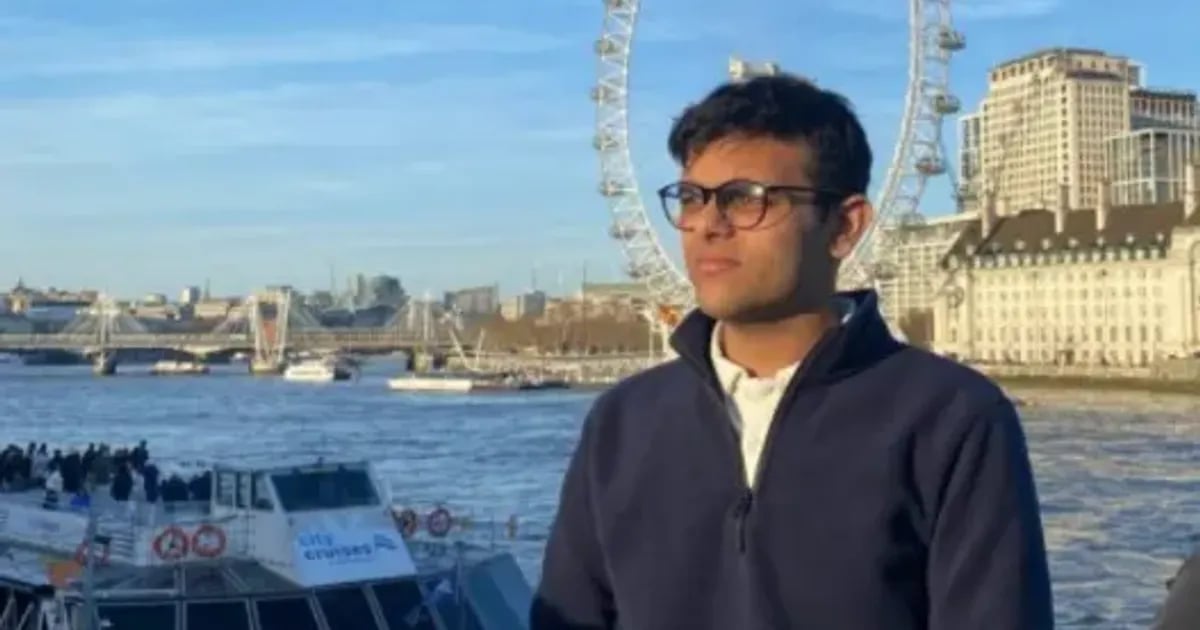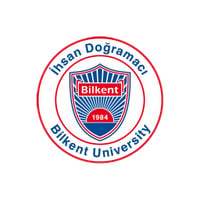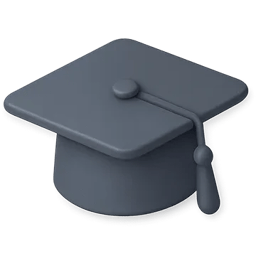أنا في سنتي الثالثة في جامعة بيلكنت، وعندما أنظر إلى الوراء، أجد أنها كانت رحلة مثيرة حقًا.
التعليم المبكر وقرارات مستوى A
قضيت الخمسة عشر عامًا الأولى من حياتي في لاهور، أدرس في بيكونهاوس جاردن تاون. حتى مستوى O، كان ذلك المكان عالمي الأكاديمي بأكمله. عندما حان وقت مستوى A، فكرت أنا وعائلتي في مجموعة من المدارس المختلفة - مدرسة صادق العامة، LGS JT، ISL، وحتى أتشيسون. كانت هذه بعض أفضل وأشهر الكليات لمستوى A الخاص بي. تم قبولي في جميعها. لكن في النهاية، اخترت كلية أتشيسون.
جاء القرار بعد حديث صريح مع والدي. قال شيئًا علق في ذهني: "التعليم استثمار - دائمًا ما يعود بالفائدة." شجعني على السعي وراء التجربة الأكثر تحولًا، وليس فقط الأكثر ميسورة أو مألوفة. وأتشيسون، بكل هيبتها، كانت بالتأكيد كذلك.
كانت هاتان السنتان في أتشيسون مفتحة للعين. قابلت أناسًا من جميع مناحي الحياة، وجعلني ذلك أفكر بشكل مختلف حول العالم - ومستقبلي. كنت أعرف أنني لا أريد البقاء في باكستان للدراسة الجامعية. لم تكن LUMS تبدو مناسبة لي، وبصراحة، كانت مكلفة مقابل ما تقدمه. لذلك بدأت أبحث في الخارج: الولايات المتحدة، المملكة المتحدة، ألمانيا... وتركيا.
لماذا اخترت جامعة بيلكنت
تقدمت إلى أفضل ثلاث جامعات في تركيا: كوتش، وسابانجي، وبيلكنت. طلبت جامعة كوتش مقالاً شخصياً ضخماً يتكون من 2000 كلمة. بعد قضاء أشهر في كتابة مقالات للجامعات الأمريكية، شعرت بالإرهاق. بالإضافة إلى ذلك، لم يكن لدينا ChatGPT آنذاك للمساعدة في تخفيف العبء، لذا لم أكمل ذلك الطلب. أما بالنسبة لجامعة سابانجي، حدث خطأ ما في عملية التقديم، ولم أتابع الأمر. من ناحية أخرى، شعرت أن التقديم لجامعة بيلكنت كان... سلساً. طبيعياً.
عندما تلقيت قبولي من جامعة بيلكنت، بدأت أبحث أكثر. كان حرم الجامعة ضخماً. كان تصنيفها العالمي جيداً بما فيه الكفاية. كانت لديهم مرافق رياضية من الطراز الأول، ورأيت أنهم يرحبون بالطلاب الدوليين من 118 دولة. وفوق كل ذلك، كانت لدي رغبة غريبة لكنها عميقة في تعلم لغة جديدة. الدراسة في المملكة المتحدة أو الولايات المتحدة لم تكن لتمنحني تلك الفرصة. ولكن في تركيا، سيكون تعلم اللغة التركية ضرورياً - وأحببت فكرة بناء نسخة جديدة من نفسي بلغة جديدة.

عملية التقديم
الآن، دعونا نتحدث عن عملية التقديم. مقارنة بالعملية في الولايات المتحدة، كانت عملية التقديم في بيلكنت بسيطة بشكل منعش. كان علي تقديم مقال شخصي قصير (حوالي 400-600 كلمة)، وكشوف درجاتي في O-Level و A-Level، والدرجات المتوقعة في A-Level، ودرجاتي في اختبار SAT. كما قمت بتضمين تفاصيل عن أنشطتي اللاصفية - والتي كانت جزءًا كبيرًا من حياتي المدرسية. في Beaconhouse، كنت جزءًا من فريقي كرة القدم وكرة السلة، وجمعية نموذج الأمم المتحدة، وأصبحت في النهاية رئيس الطلاب. في Aitchison، واصلت على نفس المسار: ناظر المدرسة، قائد المنزل، الأمين العام لجمعية القانون، وحتى جزءًا من فرق البولو وركوب الخيل.
بالنسبة لاختبار SAT، حصلت على درجة 1290 - 700 في الرياضيات و590 في اللغة الإنجليزية. كانت درجة جيدة بما يكفي لما كنت أحتاجه. أتذكر أيضًا أن بيلكنت طلبت حوالي 25 دولارًا كرسوم تقديم - والتي، بشكل مضحك، كانت الطلب الوحيد الذي دفعت رسومه. بالنسبة لجميع الطلبات الأخرى، حصلت على إعفاءات. تم قبولي في Adelphi و DePaul وجامعة جنوب فلوريدا في الولايات المتحدة. حتى مع المنح الدراسية التي تتراوح بين 35,000 و40,000 دولار سنويًا، كانت التكاليف المتبقية لا تزال مرتفعة للغاية، خاصة عند مقارنتها ببيلكنت.
لذا كان الاختيار واضحًا.
الخلفية الأكاديمية والدرجات
كنت قد حصلت بالفعل على قبولي ومنحتي الدراسية بحلول الوقت الذي خضت فيه امتحانات A2، وكان كل ما تطلبته جامعة بيلكنت هو تجنب أي درجات أقل من C للحفاظ على منحتي. انتهى بي الأمر بالحصول على درجة A في المحاسبة، وB في الاقتصاد، وC في القانون والرياضيات.
أنا مدين بالكثير لمستشارة مدرستي. لقد ساعدتني في توجيهي خلال العملية بأكملها، ونظمت الاجتماعات، وذكرتني بالمواعيد النهائية - لقد حافظت حقًا على مساري الصحيح.
المنح الدراسية والمساعدات المالية
أحد أهم الأسباب التي مكنتني من تحمل تكاليف الدراسة في جامعة بيلكنت هي المنحة الدراسية التي حصلت عليها. تبلغ الرسوم الدراسية الكاملة حوالي 17,000 دولار سنويًا، ولكن مع المنحة، أدفع فقط حوالي 6,000 دولار - وهذا يعني تخفيضًا بنسبة تقارب 60٪. إنها منحة تغطي الرسوم الدراسية فقط، لذا يتكفل والداي بباقي الرسوم ومصاريف المعيشة.
لقد تلقيت بالفعل عروضًا للمساعدات المالية من جامعات أمريكية مثل جامعة دي بول - تتراوح بين 35,000 إلى 40,000 دولار سنويًا - ولكن حتى بعد ذلك، كان المبلغ المتبقي لا يزال باهظًا. لهذا السبب برزت جامعة بيلكنت كأفضل خيار ممكن وذو قيمة عالية.
الحياة والدراسة في جامعة بيلكنت
أنا الآن في جامعة بيلكنت، وتخصصي هو الاقتصاد. البرنامج يركز على البحث بشكل كبير - أكثر مما توقعت. دخلت الجامعة وأنا أفكر في الغوص في عالم المال، ربما في مجال الاستثمار المصرفي. ولكن على الرغم من أن الجانب البحثي كان مفاجأة بالنسبة لي، إلا أنني بدأت أستمتع به. فهو يجبرك على التفكير النقدي، والتعمق في المواضيع، وبناء أساس قوي.
التكيف مع الحياة في تركيا
كانت الأسابيع القليلة الأولى بمثابة دوامة. أكبر صدمة ثقافية؟ الطعام - كان باهتًا جدًا بالنسبة لذوقي اللاهوري في البداية. وفوجئت بقلة عدد الأشخاص الذين يتحدثون الإنجليزية، حتى في بيئة جامعية. لكن الناس كانوا لطفاء ومرحبين بشكل لا يصدق، مما ساعدني على التكيف بسرعة. ونعم، تعلمت في النهاية اللغة التركية - جزئيًا بدافع الشغف، وجزئيًا بدافع الضرورة!
تعلم لغة جديدة يغيرك حقًا. الأمر لا يتعلق فقط بالكلمات الجديدة؛ بل يتعلق برؤية العالم من منظور مختلف. أشعر وكأنني طورت شخصية جديدة تمامًا باللغة التركية - شخصية أكثر انفتاحًا، وربما حتى أكثر ثقة بعض الشيء.
هل يمكن للطلاب الدوليين العمل في تركيا؟
هذا هو أحد الجوانب الصعبة. في تركيا، لا يُسمح للطلاب بالعمل بدوام كامل ما لم يكن لديهم تصريح عمل - ولا يمكنك التقدم للحصول على واحد أثناء الدراسة. على الأقل، هذا ما كان الحال بالنسبة لي. تحتاج أولاً إلى معرفة اللغة على أي حال، وتصريح العمل هو شيء يأتي فقط بعد التخرج. لذلك، خلال الأشهر الستة الأولى كنت فقط أستمتع. ولكن بعد ذلك أنشأت متجرًا إلكترونيًا وبدأت في بيع PlayStation Plus عبر الإنترنت في جميع أنحاء العالم. استمر هذا لفصل دراسي أو نحو ذلك حتى تعثرت وفشلت في الرياضيات. هذه القصة مثيرة للاهتمام أيضًا. كنت أعمل على بيع PlayStation Plus قبل يوم من امتحاني. حتى منتصف الليل كنت في مكالمات وكان امتحاني في الساعة 9 صباحًا. عندما كنت أنا وشريكي ننهي اليوم، أدركنا أننا قد جنينا الكثير من المال. أكثر مما كنا نتخيل. لذلك قررت أن أمنح نفسي ليلة نوم جيدة بدلاً من دراسة الرياضيات. بعد بضعة أسابيع، اضطررنا إلى إغلاق ذلك المتجر الإلكتروني بسبب الزيادة في أسعار PSN تركيا. الآن أعمل مع الأجانب في أنقرة كمدير للفعاليات، وأعمل كـ "Emlakci" أو وسيط عقاري للطلاب الدوليين ووكيل مبيعات للتأمين الصحي.
التطلع إلى المستقبل
ما الذي سيأتي بعد ذلك؟ بصراحة، ما زلت أحاول معرفة ذلك. لدي عام ونصف متبقي، وأنا أزن خياراتي: هل يجب أن أبقى في تركيا؟ أم أعود إلى باكستان؟ أم أتقدم للحصول على درجة الماجستير في أوروبا أو الولايات المتحدة؟ كل شيء غير مؤكد، ولكنني تعلمت أن أكون على ما يرام مع ذلك.
ما أعرفه هو هذا: اختيار جامعة Bilkent كان أحد أفضل القرارات التي اتخذتها على الإطلاق. ليس لأنها كانت مثالية - فلا توجد جامعة مثالية - ولكن لأنها منحتني فرصة النمو بطرق لم أكن لأتوقعها أبدًا.
ولأي شخص في وطني يفكر في الدراسة في الخارج، لا تخف من النظر خارج المسار المعتاد للمملكة المتحدة/الولايات المتحدة. في بعض الأحيان، يقود المسار غير المتوقع إلى أماكن مذهلة للغاية.




